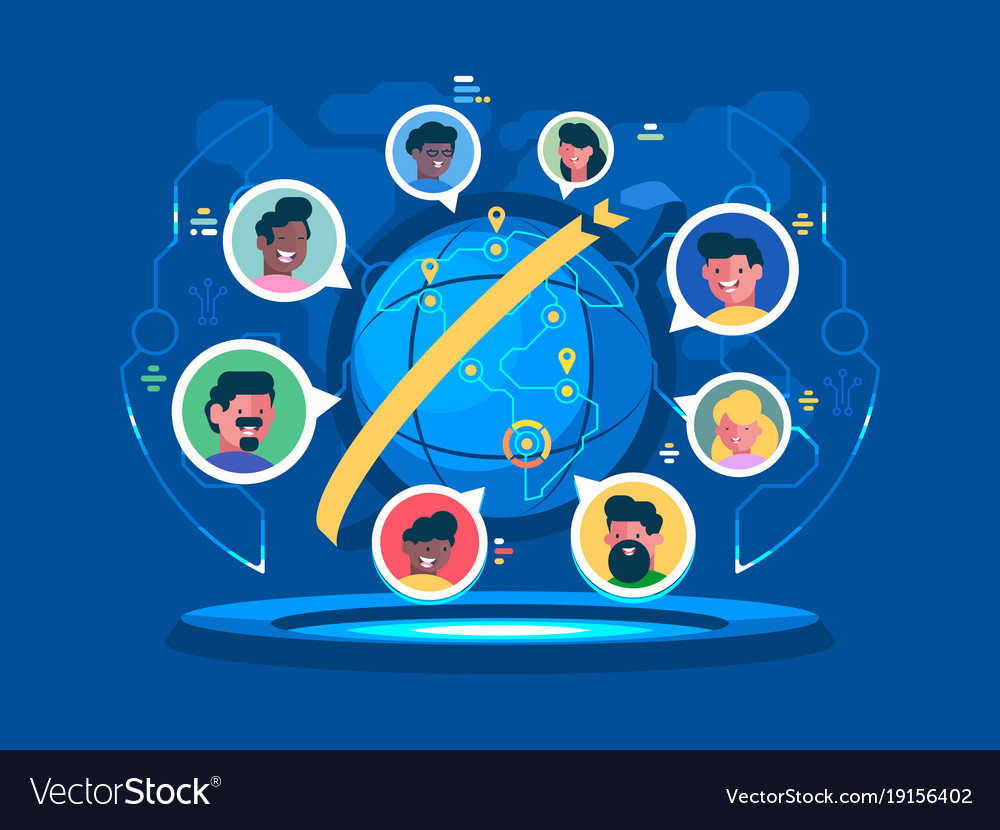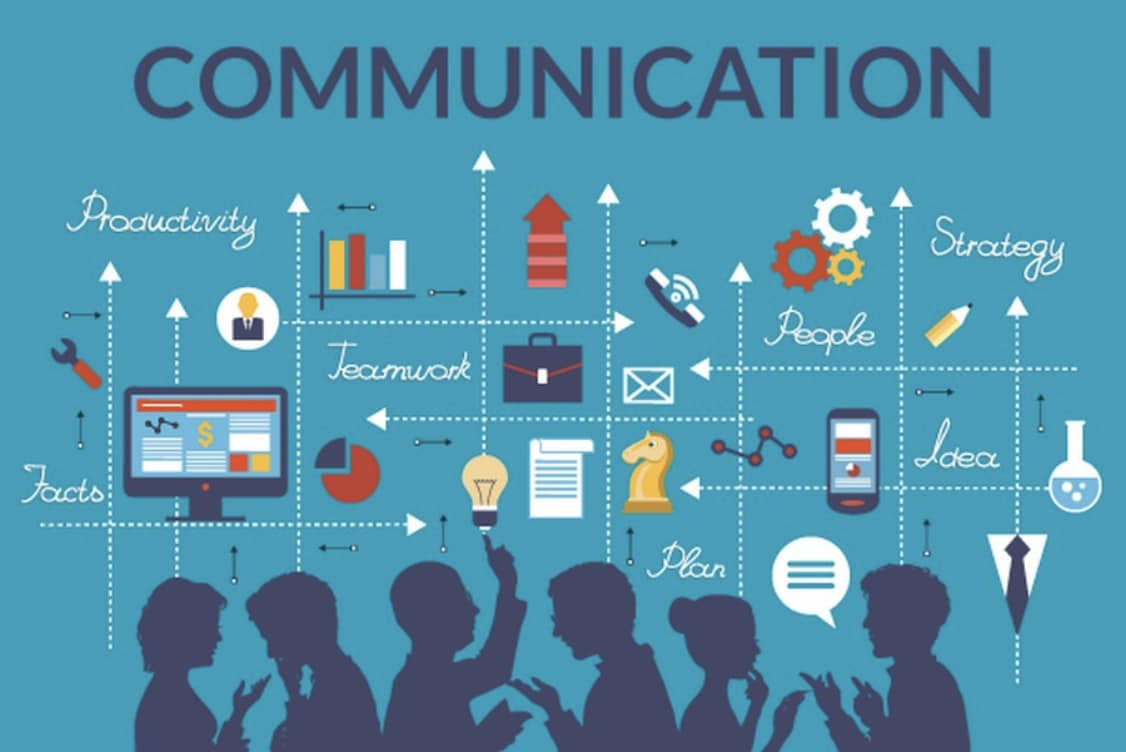In today’s digital age, WhatsApp has emerged as a dominant force in global communication, connecting billions of people across borders and cultures. Its impact on the way we communicate, conduct business, and interact with the world has been profound. This article delves into the trends and insights that have shaped WhatsApp’s remarkable journey and explores its continued influence on the future of global communication.
From its humble beginnings as a simple messaging app, WhatsApp has evolved into a comprehensive communication platform that seamlessly integrates text, voice, video, and file sharing. Its user-friendly interface and end-to-end encryption have made it a trusted and secure choice for personal and professional communication alike.
WhatsApp’s Global Reach and User Base
WhatsApp’s reach extends far and wide, boasting a staggering user base that has propelled it to become one of the most popular messaging platforms worldwide. Its global presence is truly remarkable, with users spanning across continents and cultures.
In terms of demographics, WhatsApp has managed to capture a diverse user base, appealing to individuals of all ages, backgrounds, and socioeconomic statuses. Its user base is not confined to any particular region, as it has gained immense popularity in both developed and developing countries alike.
Geographic Reach
WhatsApp’s geographic reach is truly impressive. It has become the go-to messaging platform in numerous countries around the world, including:
- India
- Brazil
- Indonesia
- United States
- Mexico
In these countries, WhatsApp has become an integral part of daily life, facilitating communication between friends, family, and colleagues. Its widespread adoption has transformed the way people connect and share information.
WhatsApp’s Impact on Traditional Communication Methods
WhatsApp has significantly altered how people communicate globally. Its convenience, accessibility, and affordability have led to a decline in traditional communication channels such as SMS and phone calls.
Factors contributing to WhatsApp’s dominance in instant messaging include its cross-platform compatibility, end-to-end encryption for privacy, and features like group chats, voice and video calling, and file sharing.
SMS Replacement
- WhatsApp’s free messaging service has replaced SMS for many users, especially in countries with high data penetration and low SMS costs.
- The ability to send unlimited messages, multimedia content, and documents has made WhatsApp a more versatile and cost-effective alternative.
Phone Call Decline
- WhatsApp’s voice and video calling features have reduced the need for traditional phone calls, particularly for international communication.
- The convenience of making calls over the internet, without incurring additional charges, has contributed to the decline in phone call usage.
WhatsApp’s Role in Cross-Border Communication

WhatsApp has emerged as a game-changer in cross-border communication, connecting individuals across geographical boundaries with ease. Its user-friendly interface, low data consumption, and end-to-end encryption make it an ideal platform for seamless international communication.
Benefits of Using WhatsApp for Cross-Border Communication
Cost-effective
WhatsApp offers free messaging and calling services, eliminating the high costs associated with traditional international communication methods like phone calls or text messages.
Convenience
WhatsApp allows users to connect with contacts from any country without the need for special codes or complicated procedures.
Real-time communication
WhatsApp’s instant messaging feature enables real-time conversations, facilitating smooth and efficient communication across time zones.
Language barriers
WhatsApp supports multiple languages, allowing users to communicate with individuals who speak different languages.
Challenges of Using WhatsApp for Cross-Border Communication
Data privacy concerns
WhatsApp’s privacy policies have come under scrutiny, raising concerns about the security of user data and the potential for unauthorized access.
Network connectivity
Stable internet connectivity is essential for WhatsApp to function effectively, which may not always be available in certain regions or remote areas.
Cultural differences
Cultural norms and communication styles can vary significantly across borders, which can lead to misunderstandings or misinterpretations in WhatsApp conversations.
WhatsApp’s Influence on Business Communication
WhatsApp has emerged as a game-changer in business communication, transforming the way businesses interact with customers and conduct operations.
One of the key advantages of WhatsApp for businesses is its ability to foster direct and personalized communication with customers. Businesses can create WhatsApp groups or broadcast lists to share updates, promotions, and customer support, creating a more intimate and interactive experience.
Case Study: Starbucks
Starbucks successfully leveraged WhatsApp to enhance customer engagement. The company launched a WhatsApp chatbot that allows customers to place orders, track their rewards, and receive personalized recommendations. This chatbot has significantly improved customer satisfaction and increased sales.
WhatsApp’s Impact on Social Interactions
WhatsApp has profoundly transformed the way people interact socially. The platform’s user-friendly interface, cross-platform compatibility, and various features have made it an indispensable tool for fostering connections and building communities.
WhatsApp Groups
WhatsApp groups have become a ubiquitous means of communication for social groups, families, and work colleagues. These groups allow multiple individuals to engage in real-time conversations, share media, and plan events. By facilitating seamless group communication, WhatsApp has strengthened social bonds and enhanced the sense of community among its users.
Voice and Video Calls
WhatsApp’s voice and video call features have revolutionized long-distance communication. With high-quality audio and video transmission, WhatsApp has made it possible for people to connect with loved ones and colleagues face-to-face, regardless of geographical distance. These features have fostered a sense of closeness and immediacy, bridging gaps and strengthening relationships.
WhatsApp’s Contribution to Digital Literacy and Inclusion
WhatsApp has played a significant role in bridging the digital divide and improving digital literacy among underserved populations. By providing a user-friendly and accessible platform, WhatsApp has empowered individuals with limited access to traditional communication channels.
WhatsApp’s simple interface and low data consumption make it an ideal tool for individuals with limited technical skills or access to high-speed internet. The platform’s intuitive design allows users to navigate and communicate easily, promoting digital literacy and confidence.
Educational Initiatives
Recognizing WhatsApp’s potential, various organizations have launched initiatives that leverage the platform for educational purposes. For instance, the “WhatsApp for Education” program by UNESCO provides resources and training to educators and students in developing countries, enabling them to integrate WhatsApp into their teaching and learning practices.
Community Outreach
WhatsApp has also been instrumental in community outreach programs. Non-profit organizations and government agencies use WhatsApp to disseminate information, provide support, and engage with communities in remote or underserved areas. By creating WhatsApp groups and broadcast lists, these organizations can share vital information on health, education, and other essential services, bridging the gap between communities and resources.
Economic Empowerment
In addition to educational and community outreach, WhatsApp has also contributed to economic empowerment. Micro-entrepreneurs and small businesses use WhatsApp to connect with customers, promote their products and services, and facilitate transactions. The platform’s low-cost messaging and group chat features enable small businesses to reach a wider audience and build relationships with customers.
WhatsApp’s Privacy and Security Considerations
WhatsApp has faced scrutiny regarding privacy and security concerns. However, it has implemented various measures to address these concerns.
WhatsApp employs end-to-end encryption, ensuring that messages are only accessible to the sender and receiver, preventing third-party interception.
Data Security
- WhatsApp stores user data on secure servers, implementing encryption measures to protect against unauthorized access.
- It uses two-factor authentication to enhance account security, requiring a PIN or biometric verification for login.
Data Collection
- WhatsApp collects limited user data, primarily for service improvement purposes, such as usage patterns and device information.
- It does not share user data with third parties for advertising or marketing purposes.
WhatsApp’s Future Trends and Innovations
WhatsApp, with its vast global reach, is continuously evolving to meet the changing communication needs of users. As technology advances, we can expect to see several exciting trends and innovations that will further enhance WhatsApp’s impact on global communication.
Emerging Technologies
WhatsApp is likely to embrace emerging technologies such as artificial intelligence (AI) and machine learning (ML) to improve its features and user experience. AI-powered chatbots and virtual assistants can enhance customer support, provide personalized recommendations, and streamline communication processes.
Enhanced Privacy and Security
Privacy and security are paramount for WhatsApp users. The platform is expected to continue investing in robust encryption protocols and explore new ways to protect user data. End-to-end encryption will remain a core feature, ensuring that messages and calls are secure from eavesdropping.
Cross-Platform Compatibility
WhatsApp is currently accessible on various platforms, including smartphones, tablets, and desktops. As technology evolves, we can expect WhatsApp to expand its cross-platform compatibility, making it accessible on a wider range of devices and operating systems. This will further enhance its global reach and ease of use.
Integration with Other Services
WhatsApp is likely to explore integrations with other services and platforms. This could include partnerships with e-commerce platforms, payment gateways, and social media networks. Such integrations would allow users to seamlessly perform various tasks within the WhatsApp ecosystem, enhancing convenience and streamlining communication.
New Features and Functionality
WhatsApp is constantly introducing new features and functionality to improve user engagement. Future innovations may include enhanced video conferencing capabilities, support for larger file sharing, and the introduction of new interactive elements within chats. These features will further enrich the communication experience and cater to the evolving needs of users.
Closing Summary

As WhatsApp continues to innovate and expand its capabilities, its impact on global communication is poised to grow even further. Its potential to bridge cultural divides, facilitate cross-border collaboration, and empower underserved communities is immense. By harnessing the power of technology, WhatsApp is transforming the way we connect with each other, making the world a smaller and more interconnected place.
Q&A
How many people use WhatsApp?
As of 2023, WhatsApp has over 2 billion active users worldwide, making it one of the most popular messaging apps globally.
Is WhatsApp safe to use?
WhatsApp employs end-to-end encryption, which ensures that messages and calls are protected from unauthorized access. However, it’s important to be mindful of the information you share on the platform and to use strong passwords to protect your account.
How can businesses use WhatsApp?
Businesses can leverage WhatsApp for customer service, marketing, and sales. Features like WhatsApp Business API and WhatsApp Business App allow businesses to automate tasks, send bulk messages, and provide personalized support to customers.
How does WhatsApp contribute to digital literacy?
WhatsApp’s user-friendly interface and accessibility make it an effective tool for promoting digital literacy. It enables people with limited digital skills to connect with others, access information, and participate in online activities.



